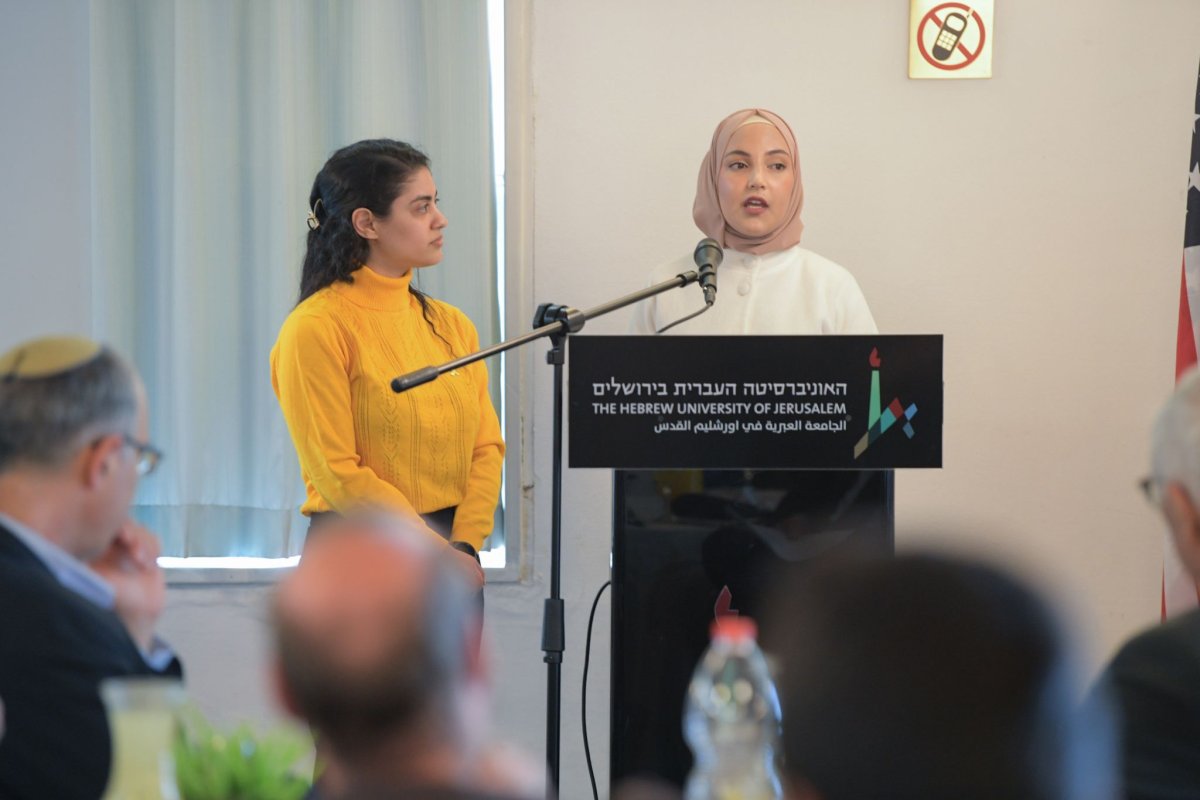We represent a group of 25 Yale faculty who have just returned from a five-day visit to Israel. Our mission was to learn from and make meaningful academic connections with our Israeli counterparts. Much of what we learned and observed astounded us.
The environment is challenging, yet the Israeli academic enterprise has proven breathtakingly resilient. Imagine operating a university where a quarter to a third of students, staff, and faculty have been murdered, injured, taken hostage, or are on active military reserve service. Imagine teaching in classrooms with both Arab students (some with family in Gaza or the West Bank) and Jewish students (many just returned from military service or with casualties among family and friends). Imagine trying to manage standard faculty promotion, review, and tenure processes in the face of boycotts and similar discrimination from hostile academics around the world.
Contrary to the apartheid charge leveled against Israel in general and Israeli academic institutions in particular, we saw precisely the opposite. At Hebrew University, we received a presentation from two young female students, one a hijab-wearing Muslim and the other Jewish, just returned from reserve duty. The presentation ended with their heartfelt embrace.

At Ben Gurion-Soroka Hospital, Technion-Rambam Hospital, and the Hebrew University-Hadassah Medical Center, we saw how integrated their medical schools and faculty are. The percentage of doctors, nurses, and pharmacists who are Arabs greatly exceeds their share in the total population.
We heard Arab university vice presidents, and their Jewish counterparts take full pride in jointly leading Israeli university life. Unlike the scene on American campuses, Muslim and Christian Arabs, Druze and Jewish students understand that their job is to learn, not to fight each other.
In presentations by an Israeli Arab journalist and a Druze professor, we learned that contrary to conceptions prevalent on American campuses, the majority of Israeli Arabs do not seek to separate from Israel. Indeed, while Israeli Arabs do have demands, we learned they are in service of more integration into Israeli society—better schools, law enforcement, and physical infrastructure—not less. Similarly, we learned from a Druze professor the strong connection to the Jewish State felt by the Israeli Druze.
We met face-to-face with faculty in academic disciplines matching our own at each of Ben Gurion University of the Negev, the Hebrew University of Jerusalem, the Technion-Israel Institute of Technology, the Weizmann Institute of Science, and Tel Aviv University. We also met with the leaders of Sapir College in Sderot which came under direct attack on October 7, and Tel Hai Academic College which is currently evacuated due to the Hezbollah threat from Lebanon.
The President of Israel's Academy of Sciences and Humanities and a Nobel Prize winner addressed the challenges facing Israeli academics in discussion with us. Facing such brilliance (and in such a small country), we were dismayed to learn the extent of academic discrimination being directed at Israeli academics: faculty who were invited to address conferences only to be told later—and in one case upon arrival in Australia—that they were no longer welcome to speak; external reviewers returning evaluation requests because they refuse to consider Israeli scholars; journals reneging on decisions to publish papers that were already accepted.
This is especially upsetting to us given the emergence of organized faculty extremists on American campuses with the publicly stated objective of boycotting Israeli academia. Our reaction to such prejudice is clear: we will build upon already existing collaborations with our Israeli colleagues, invite Israeli speakers to campus, offer to provide objective evaluations and reviews within our academic areas of expertise, and provide opportunities for budding young Israeli researchers.
We could not come to Israel without visiting the sites of the Oct. 7 atrocities and seeing with our own eyes what Hamas did to innocent civilians. We saw the carnage and devastation at Kfar Azza where 64 kibbutz members were murdered, and many others taken hostage. We visited the site of the Nova Festival where more than 360 young Israelis were murdered, raped, and kidnapped. We learned how at Soroka hospital in Beer Sheva, arriving Oct. 7 casualties peaked at the rate of one every 40 seconds, yet the hospital was able to stay open and maximize the number of lives they could save.
Every Israeli university, like all of Israel, remains traumatized from Oct. 7. Yet Israelis are resilient, and this is doubly true for Israeli academics. Indeed, virtually all the faculty and students we met asked how they could help us deal with the grotesque protests so commonplace on American university campuses. Seeing the strength of our Israeli academic colleagues, we return committed to telling their stories and fighting back against the hate.
Edward H. Kaplan is the William N. and Marie A. Beach Professor of Operations Research, Professor of Public Health, and Professor of Engineering at Yale University.
Evan Morris is Professor of Radiology and Biomedical Imaging and of Biomedical Engineering at Yale University, and Co-director for Imaging at the Yale PET Center.
The views expressed in this article are the writers' own.
Uncommon Knowledge
Newsweek is committed to challenging conventional wisdom and finding connections in the search for common ground.
Newsweek is committed to challenging conventional wisdom and finding connections in the search for common ground.
About the writer
To read how Newsweek uses AI as a newsroom tool, Click here.








